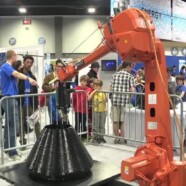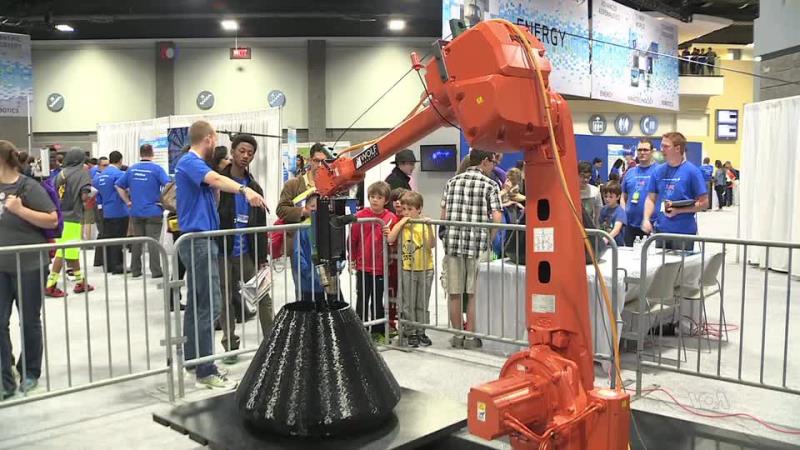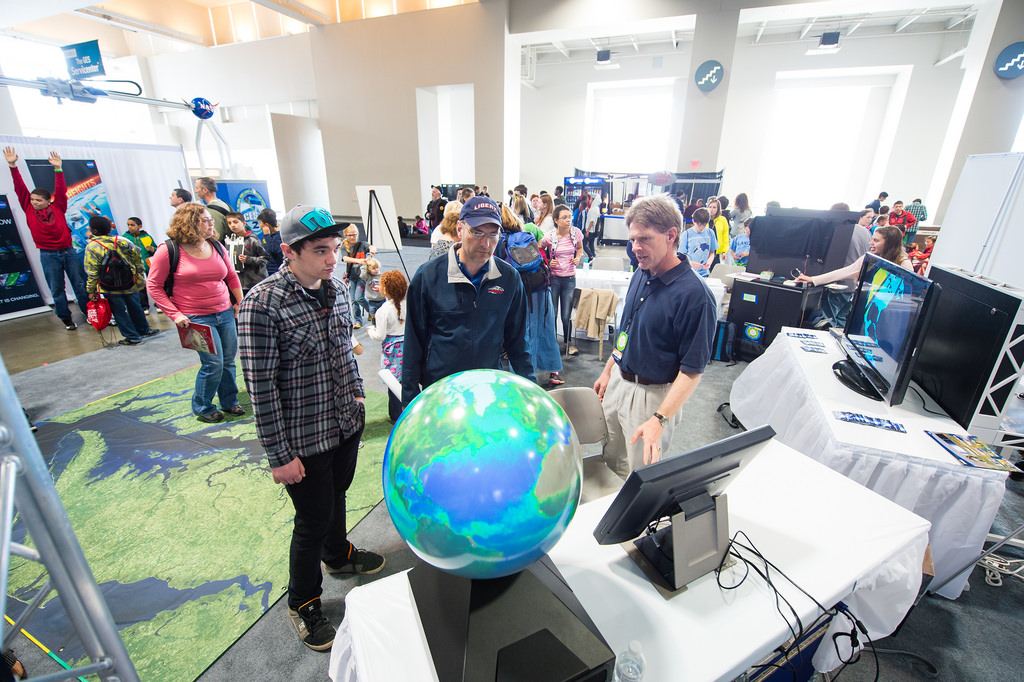SciTech Festival Inspires Student
Science, Technology Festival in Nation’s Capital Inspires Students
For one of the world’s most technologically advanced nations, the United States sorely lacks scientists and engineers. The USA Science and Engineering Festival in Washington, D.C., is one of the initiatives trying to change that. It’s the only national event aimed at inspiring students to consider careers in science, technology, engineering and mathematics.
Judging by the number of students exploring the high technology exhibits and stage performances at Washington’s Convention Center, the interest in science and engineering is high. But according to a survey of more than a million American students, slightly more than 10 percent of high school graduates say they are interested in a career in those fields.
One of the co-founders of the USA Science and Engineering Festival, Larry Bock, said societies get what they celebrate. “We celebrate athletes, pop stars, professional actresses and actors, and we generate a lot of wannabes [people who “want to be” something], but we don’t celebrate scientists and engineers.”
Bock helped organize the first, now annual, science festival in San Diego, California, in 2009. Its success was quickly recognized by the technology industry, which struggles to find enough qualified scientists and engineers.
With Lockheed-Martin’s Ray O. Johnson, Bock launched a national festival in 2010.
Johnson said translating science, technology, engineering and math – collectively known as STEM – into a fun activity is bound to have a positive effect. “I am absolutely confident, without a shadow of a doubt, that in 10 years, in 20 years, they will be adults then, they would have entered into the STEM field, and they’ll look back on this event and they’ll say that’s why I did this.”
Youngsters at the festival were exposed to a lot of hands-on experience, from flight simulators and robotic printers to playing with prostheses.
Many of them jumped the psychological barrier between passive listening and active exploration, joining military veteran and quadruple amputee Travis Mills on stage, as he showed off his mechanical arm.
Mills said there are a lot of wounded veterans who could help kids learn about the science and technology incorporated into their artificial limbs.
“Kids are going to stare and wonder so why not open their eyes to it and let them know how great the science is out there,” he said.
Some students already have experienced the thrill of creating new things. High school senior Andrea Li was one of the teen inventors here, talking about her work. She said festivals like this have enormous potential. “I think it’s really exciting and that’s how you get more people interested,” she said.
Organizers say they hope the success of this event will inspire more regional festivals, to help ease the nation-wide shortage of scientists and engineers.
Source: George Putic / VOA News



